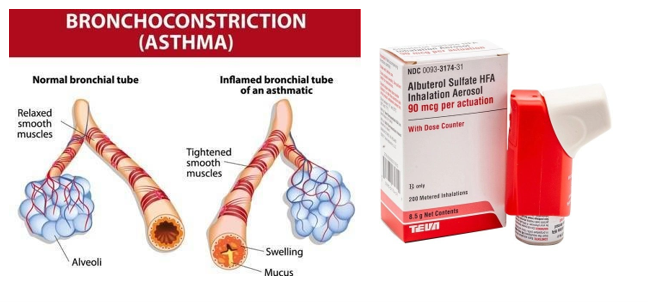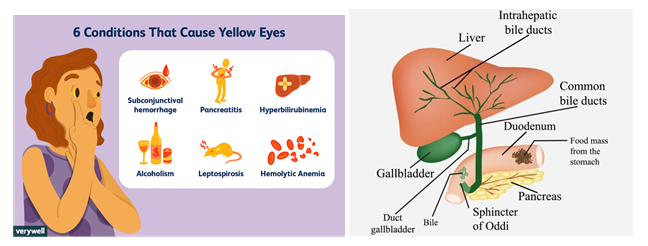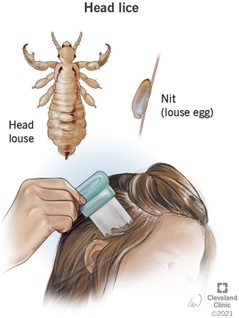A 6-year-old boy with bronchial asthma takes the beta-adrenergic agonist agent albuterol. The child's mother tells the nurse that she uses this medication to open his son's airway when he is having trouble breathing.
What is the nurse's best response?
Advise the mother that overuse of the drug may cause chronic bronchitis.
Assure the mother that she is using the medication correctly.
Confirm that the medication helps to reduce airway inflammation.
Recommend that the mother bring the child in for immediate evaluation.
The Correct Answer is B
Albuterol is a beta-adrenergic agonist agent that is used to open the airways in people with bronchial asthma. The mother's use of this medication to open her son's airway when he is having trouble breathing is appropriate. Overuse of the drug may cause side effects, but it does not cause chronic bronchitis (A)
Albuterol helps to relax the muscles in the airways, but it does not reduce airway inflammation (C)There is no indication that the child needs immediate evaluation (D)

Nursing Test Bank
Naxlex Comprehensive Predictor Exams
Related Questions
Correct Answer is B
Explanation
Biliary atresia is a condition that can cause jaundice in newborns and infants, and it can also lead to tea-colored urine due to the presence of bilirubin in the urine. Infants with biliary atresia require further assessment and treatment, including possible surgery, to prevent liver damage and other complications.
A. Intussusception is a condition in which a part of the intestine folds into itself, causing an obstruction, but it does not typically present with jaundice or tea-colored urine.
C. Hirschsprung's disease is a congenital condition that affects the large intestine and can cause bowel obstruction, but it also does not typically present with jaundice or tea-colored urine.
D. Huntington's disease is a genetic neurological disorder that typically does not present in infants and does not cause jaundice or tea-colored urine.

Correct Answer is D
Explanation
The nurse should instruct the parents to wash the child's bed linens and clothing in hot soapy water to kill any remaining head lice and prevent reinfestation. The child's brushes, combs, and other hair accessories should also be washed in hot soapy water or disposed of. Taking the child to a hair salon for a shampoo and a shorter haircut is not necessary for treatment of head lice. Rewashing the child's hair following a 24-hour isolation period is not necessary if the permethrin shampoo has been used as directed.

Whether you are a student looking to ace your exams or a practicing nurse seeking to enhance your expertise , our nursing education contents will empower you with the confidence and competence to make a difference in the lives of patients and become a respected leader in the healthcare field.
Visit Naxlex, invest in your future and unlock endless possibilities with our unparalleled nursing education contents today
Report Wrong Answer on the Current Question
Do you disagree with the answer? If yes, what is your expected answer? Explain.
Kindly be descriptive with the issue you are facing.
